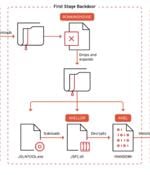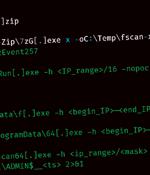Security News

Meta on Thursday revealed that it disrupted three covert influence operations originating from Iran, China, and Romania during the first quarter of 2025. "We detected and removed these campaigns...

The nation-state threat actor known as MirrorFace has been observed deploying malware dubbed ROAMINGMOUSE as part of a cyber espionage campaign directed against government agencies and public...

Threat hunters have uncovered a new threat actor named UAT-5918 that has been attacking critical infrastructure entities in Taiwan since at least 2023. "UAT-5918, a threat actor believed to be...

Taiwan has become the latest country to ban government agencies from using Chinese startup DeepSeek's Artificial Intelligence (AI) platform, citing security risks. "Government agencies and...

Mongolia, Taiwan, Myanmar, Vietnam, and Cambodia have been targeted by the China-nexus RedDelta threat actor to deliver a customized version of the PlugX backdoor between July 2023 and December...

More evidence of Beijing’s liking for grey zone warfare, or a murky claim with odd African entanglements? Taiwanese authorities have asserted that a China-linked ship entered its waters and...

Taiwanese entities in manufacturing, healthcare, and information technology sectors have become the target of a new campaign distributing the SmokeLoader malware. "SmokeLoader is well-known for...

Taipei laughs it off – and so does Beijing, which says political slurs hit sites nobody reads anyway Taiwan has dismissed Chinese allegations that its military sponsored a recent wave of...

A previously undocumented threat actor with likely ties to Chinese-speaking groups has predominantly singled out drone manufacturers in Taiwan as part of a cyber attack campaign that commenced in...

Organizations in Taiwan and a U.S. non-governmental organization based in China have been targeted by a Beijing-affiliated state-sponsored hacking group called Daggerfly using an upgraded set of malware tools. Daggerfly, also known by the names Bronze Highland and Evasive Panda, was previously observed using the MgBot modular malware framework in connection with an intelligence-gathering mission aimed at telecom service providers in Africa.